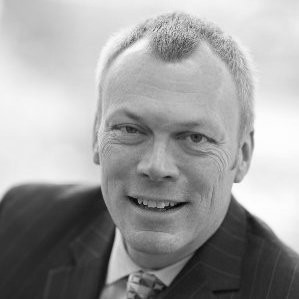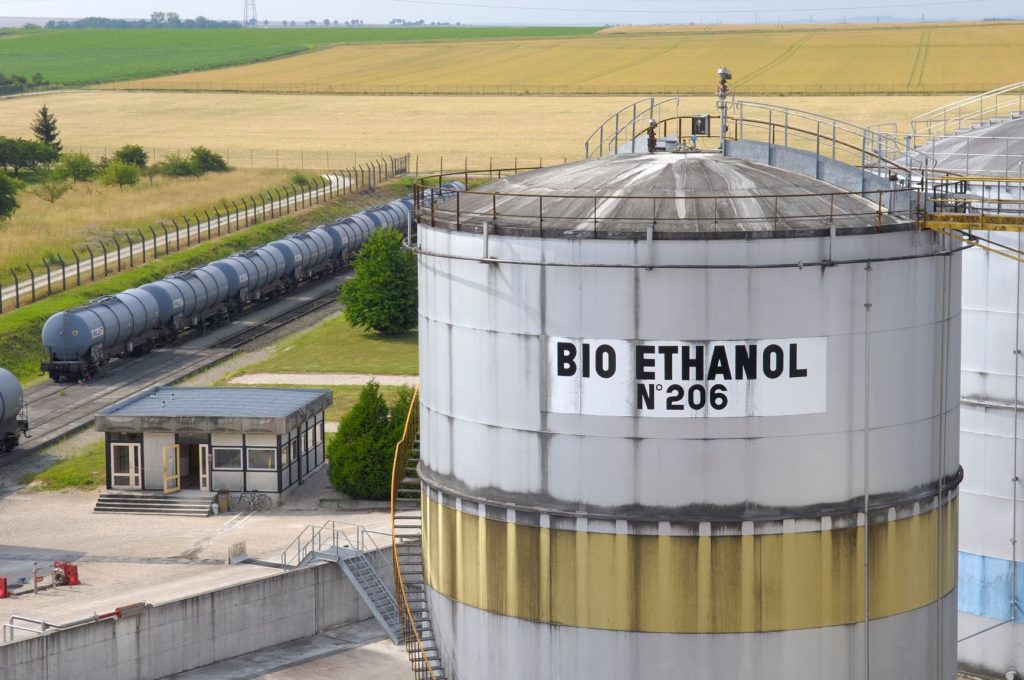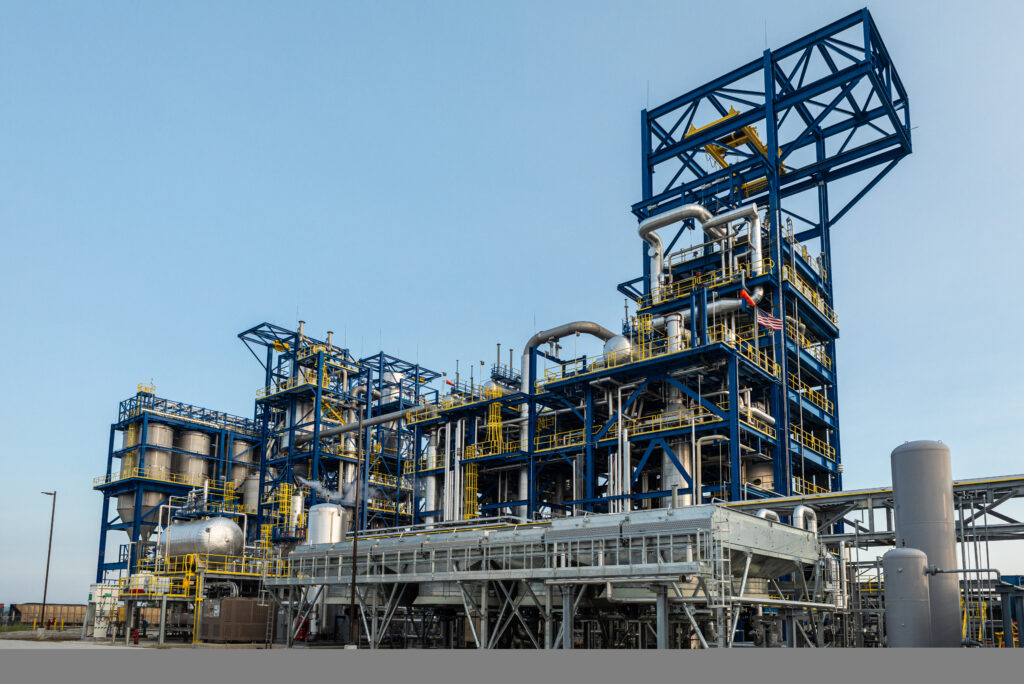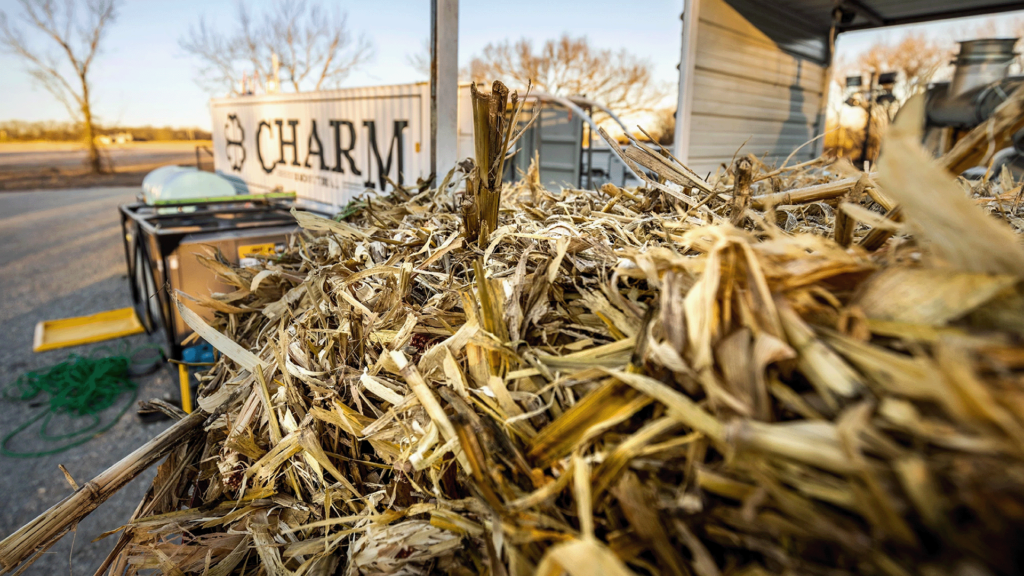Featured Experts

Steve Wirtel
Executive Vice President of Business Development at KORE Infrastructure

Steve Wirtel
Executive Vice President of Business Development at KORE Infrastructure
With a background in civil and environmental engineering, Steve Wirtel is a business development executive with 30 years of experience in the water and wastewater markets. As a partner and director at Carollo Engineers, an environmental engineering firm, he oversaw a $12 million business development budget, implemented company-wide sales and marketing strategies, and launched a major rebranding. Steve was the Senior Vice President for Nutrient Recovery at Ostara Nutrient Recovery Technologies, where he helped clients extract valuable nitrogen and phosphorus from liquid wastes. He also held an executive management position with USFilter.
In this Episode
Landfills emit about 2% of the world’s greenhouse gases, but in terms of lowering global emissions, they represent some of the lowest hanging fruit. When organic waste – like municipal food waste, agricultural waste, and forest residue – is disposed of by burial in a landfill or incineration, the organic material within is broken down to methane or CO2, and released to the atmosphere. But if that organic waste is diverted to other forms of disposal, those emissions could be avoided.
Steve Wirtel, the Executive Vice President of Business Development at Kore Infrastructure, joined Climate Now to explain how Kore’s biomass thermal conversion (slow pyrolysis) process can be used to dispose of organic waste, sequester carbon and generate energy. We explore how Kore’s modular design works, how it can be adapted for various feedstock inputs and consumer products (including hydrogen), how this kind of technology is financed, and how slow pyrolysis can align with emission reduction legislation and environmental justice objectives.
Related Media:


Climate Now: Jul 19, 2021
Bioenergy Conversion with Jerry Tuskan
How exactly are plants converted into liquid transportation fuel? And what obstacles does bioenergy need to overcome in order to displace fossil fuels in the US energy economy and abroad? Jerry Tuskan is the CEO of the Center for Bioenergy Innovation and Group


Climate Now: Jul 12, 2021
Biomass Availability with Matthew Langholtz
Bioenergy is a renewable energy for its carbon neutrality – plants absorb CO2 during photosynthesis and emit the same amount when combusted for energy. But to significantly reduce our reliance on fossil fuels, substantial amounts of biomass, or organic m


A Climate Change Primer Ep 6
Biofuels: An overview
Biomass – such as corn or switchgrass – can be converted into liquid transportation fuels, or biofuels. Biofuels are attractive because they result in significantly fewer emissions than fossil fuels, but they come with their own set of challenges,


Climate Now: Apr 3, 2023
Making hydrogen and carbon black out of renewable natural gas
Renewable natural gas (RNG), made from the decomposition of organic waste like livestock manure, is not necessarily net-zero if it’s burned to run a turbine or drive a car. But what if the RNG is not burned, but is rather pyrolyzed, breaking it down in


Climate Now: Jan 16, 2023
Farm to stable CO2 storage
The agricultural sector produces about a tenth of the world’s greenhouse gas emissions, and while most of that comes from livestock (about 2/3), emissions from crop production still total about 2.2 billion metric tons of CO2-equivalent. Interestingly, we onl
Episode Transcript
TRANSCRIPT
James Lawler: [00:00:00] Welcome to Climate Now, a podcast that explores and explains the ideas, technologies, and solutions that we’ll need to address the climate crisis. I’m James Lawler, and to sign up for our newsletter, which goes out every Tuesday morning with the link to the latest podcast episode as well as background information and relevant links if you’d like to dig deeper, you can go to climatenow.com and put in your email to subscribe. To get in touch with us you can always email us at contact@climatenow.com. We love to hear from our listeners, your feedback ideas, et cetera so don’t be shy.
For today’s episode, agriculture produces a lot of carbon rich leftovers – branches, leaves, husks, shells, stems – from food crops. Even ordinary landscaping produces a lot of waste clippings. And this stuff decomposes and a lot of the carbon it contains ends up back in the atmosphere. So what if businesses producing this waste could turn it into fuel? And what if they could capture and [00:01:00] sequester carbon in that process? My guest today is from a company that is working to help other businesses do just that.
Steve Wirtel is Vice President of Business Development for Kore Infrastructure. This is a company that makes modular onsite installations that allow commercial farms, logging firms, forestry services, and other companies to turn their organic trash into sustainable treasure. So I’ll speak with Steve about how Kore’s installations work, the market opportunities for the biogas that they produce, and how government incentives have made it more valuable than ever before.
Kore is one of a growing class of companies that we’ve been getting to know here at Climate Now that is seeking to take waste products from a variety of industrial processes and turn them into valuable fuels and inputs in a carbon negative way. So we’ll learn more about that shortly. But first, it’s time for our news segment: This Week in Climate News.
This week in [00:02:00] climate news, I’m joined by our managing producer here at Climate Now, Emma Crow-Willard.
Emma Crow-Willard: Great to be here.
James Lawler: Emma, what’s the first story that we’re looking at today?
Emma Crow-Willard: Yeah, we’re looking at an article in the Financial Times about how China’s ramping up coal power, even though they are also pushing for renewables. So kind of the news in this piece is that in just this first bit of 2023, China provincial governments have already approved more new coal, electricity generation projects than the entirety of 2021.
So that doesn’t seem to be aligned with their 30-60 plans, that is their commitments to peak carbon emissions by 2030, and then reach net zero by 2060. However, it might still be some analysts seem to think.
James Lawler: Right. Now that said, these are provincial government approvals of new coal fired electricity generation. We’re not actually talking about plants that have been built. And in spite of that, analysts do believe that they could [00:03:00] still be on track to hit those goals.
It’s, it’s sort of hard to tell. What we do know is that China accounts for half the world’s consumption of coal today and The World Bank has said that the country’s energy transition will require, you know, a massive shift in resources and new technologies to enhance energy efficiency and resource productivity.
So there is a long way to go. That said, 30% of the world’s installed solar capacity is installed in China. And China controls about 90% of the market for key components that go into solar installations. In the wind industry, it’s wind manufacturers have about 30% of the global market share ahead of rivals in Denmark and Spain. Forget about the United States. We’re not even on the map there in either of those.
Emma Crow-Willard: Dang, you know, obviously they’re valuing reliability of their grid over reducing carbon emissions, at least in the short term. Which, you know, we’re doing that too, so.
James Lawler: Mm-hmm.
Emma Crow-Willard: And it seems like if there’s stranded assets, [00:04:00] that’s fine, as long as they’re still having a more reliable grid.
James Lawler: Right, in the short term.
Emma Crow-Willard: Exactly.
James Lawler: So there’s someone from Greenpeace, Li Shuo, who was quoted in the article as saying that in provincial leaders, political calculus, a power blackout even of just one or two hours is far more costly to them than billions of dollars in stranded assets, which is very interesting.
And the quote is, in China, it is never just economics 101, it’s the political economy 101. So that’s also worth noting here. And you know, the provincial governments, as we’ve learned in other episodes on Climate Now must adhere to the five-year plans that are put in place. And the latest five-year plan is in favor of renewable energy and carbon emissions reduction.
So there’s a lot of different sort of facets to the issue of decarbonization in China. Certainly the world cannot achieve the emissions reductions that are required to avoid catastrophic damage from climate [00:05:00] change without China meeting its goals.
Emma Crow-Willard: And if anyone wants to go listen to our podcast episode that we did on the latest China five-year plan with Joanna Lewis, Johnny Huang, and Laura Edwards. It’s called Will China Reach Net- Zero Emissions by 2060? That is the question.
James Lawler: That is the question. Our next story is from the Associated Press, youth environmentalists bring Montana climate case to trial after 12 years.
Emma Crow-Willard: Yeah, so this is kind of exciting, I think. The trial started on June 12th, it should be like a two week trial and is brought by Our Children’s Trust, which has been filing climate lawsuits in literally every state on behalf of youth plaintiffs since 2010. One of the biggest ones I’ve been following was, uh, Juliana versus the United States, and they’re, you know, trying to make the case that these governments need to protect these children’s future.
James Lawler: Yeah. Uh, the main [00:06:00] question being deliberated is, does the Montana State government, do state governments in general have a duty to protect citizens from climate change? Do they or do they not?
Emma Crow-Willard: And there was a previous case brought in Montana that was dismissed. That one kind of argued that, that there wasn’t enough evidence that Montana was contributing, you know, a significant amount to climate change to result in affecting these children.
But this time around, it sounds like they’re taking more of a physical, direct impact approach. The youth in the case, they’re going to talk about the, you know, health impacts that they’re experiencing right now from fires in Montana, from droughts and things like that.
The Montana Constitution says that the state shall maintain and improve a clean and healthful environment in Montana for present and all future generations. And [00:07:00] so it’ll be the task of the lawyers in this case to try to prove that that is not being upheld.
James Lawler: Mm-hmm. It’s very interesting to think about what will happen as visibility into emissions, where exactly emissions are coming from, and the granularity of the data sets that are out there, and our ability to sort of compute with large data sets as that gets more and more sophisticated and as sort of the, the spotlight of kind of big data is increasingly trained on climate and on the environment, it’ll be really interesting to see how these lawsuits proliferate. And I think that companies and organizations, you know, governments who, today, do not see themselves at risk of sort of being liable or at risk of fault because you can’t prove it, are going to lose that ability. I, I, you know, I would guess over time the liability will become a lot more real for actors in this space.
Our next story is about the unusual temperatures detected [00:08:00] at the surface level of the North Atlantic Ocean. University of Maine publishes a great tool called the Climate Reanalyzer, and it publishes the daily sea surface temperature and what we see here is that the temperatures in the North Atlantic are trending significantly higher than they have ever trended before, at least in, you know, as far as we’ve been measuring it, which goes back many decades.
Emma Crow-Willard: I pulled this piece because I saw this striking graph all over the internet showing the ocean temperature in the North Atlantic hitting this unusual high, it was like 1.2 degrees Celsius above the surface temperature mean from 1982 to 2011. We also saw a bunch of dead fish just wash up on the shores of Texas, which was kind of alarming.
James Lawler: This, according to Katie St. Clair, who’s manager of the sea life facility at Texas A&M University at Galveston, um, explained was due to low oxygen levels in the [00:09:00] surface waters, which is where these sort of bait fish congregate, due to elevated temperatures in part.
Emma Crow-Willard: Uh, well, we’re gonna continue to see, I think, record shattering in the years to come, unfortunately.
James Lawler: So, yeah, I think a theme that we’ve been, that we’ve articulated a number of times on the podcast is just how we really haven’t wrapped our heads around just how connected all of these different systems are. And as we start to see an increasing numbers of record setting events in terms of temperature and in terms of fires and in terms of deaths of, you know, marine species, et cetera, the true cost of all this is going to sort of, is going to come home.
Emma Crow-Willard: Yeah. So another story, The World Bank’s insurance arm, the multilateral investment guarantee agency or MIGA, is going to be working on plans to essentially protect or insure carbon [00:10:00] offsetting projects against political risks in developing countries. This is an interesting development cause carbon offsets have been a little bit controversial around are they actually offsetting carbon or are they just allowing businesses to continue polluting?
James Lawler: Basically, what they want to do is ensure carbon credit projects that are, you know, purchased by, let’s say, an entity that’s trying to offset their emissions by buying, you know, carbon credits in other countries, you know, around the world.
Which will sort of fill this gap that the insurance markets have not come to the table to fill, in part because there’s not enough history yet with carbon offsets to understand if you know how risky they actually are. We certainly know that if you’re selling car carbon offsets in the form of protected forest, for example, this is a very, very risky thing to be selling and you probably shouldn’t be selling.
No one [00:11:00] should be in that insurance market because we have things like forest fires. Um, you know, but you know, there are a lot of different kinds of projects that claim to reduce or to store, to remove carbon. And there’s a massive need on the part of, you know, corporations, uh, to offset emissions that are, you know, harder for them to abate.
One side of it is, of course, that we need, you know, a massive amount of carbon removal, and if companies are willing to come to the table and pay for it, why shouldn’t they, if there are great ways to do it. The flip side, Emma, as you noted, is that the companies buying them are doing so because they’re producing emissions that they’re trying to offset. So perhaps the solution should just be stop emitting in the first place. Anyway, we’ll follow this story as it continues.
Emma Crow-Willard: I think another piece of this is that some of these developing countries are still pulling together their nationally determined contributions. And [00:12:00] so as they’re doing that, they are deciding like, can we afford to export these credits or do we want these for our NDC?
And so, there’s a risk there. If companies are trying to buy credits from other countries and then the countries are counting them towards their NDCs, then they’re being double counted and then we’re not actually having action that we need
James Lawler: Indeed. Now for our interview. With a background in civil and environmental engineering, Steve Wirtel has spent more than 30 years trying to make waste less wasteful.
He spent years in the water sector helping to extract valuable chemicals from liquid waste before becoming Vice President of Business Operations of Kore Infrastructure. Kore’s, onsite biogas installations deploy a process called pyrolysis to convert woody biomass waste, things like corn husks, forest deadfall, peanut shells, into usable gases.
Pyrolysis isn’t new by any means, but the number of companies deploying pyrolysis to transform one kind of material into another that’s economically [00:13:00] useful is fairly small, and the technology can be capital intensive. Kore, however, aims to make pyrolysis feasible for individual farms and industrial sites alike.
Steve Wirtel: Kore has a pyrolysis technology that converts what we would previously have placed in a landfill or incinerated and convert it into carbon negative renewable energy that can, you know, not only reduce atmospheric, carbon dioxide, but provide zero emission transportation fuel to decarbonize transportation, which is still the largest percentage of greenhouse gas emissions in the country.
James Lawler: So let’s move through exactly what the process is. So my understanding is it’s a pyrolysis process that starts with the bio feedstock. Explain what that means. So what kind of feed stocks can go into a Kore pyrolyzer. What happens and what are the outputs?
Steve Wirtel: So our, our focus [00:14:00] is principally on low moisture, lignocellulosic feedstocks; woody biomass. So think things like orchard- low moisture, agricultural residuals, nutshells fruit pits, and tree removals and tree prunings.
James Lawler: Mm-hmm.
Steve Wirtel: You know, California’s one of the largest orchard industries on the globe, and every year 10% of those trees from almonds, pistachios, walnut, citrus, avocado, have to be removed and replaced to maintain productivity. That generates a whole lot of biomass feedstock.
So that’s just one basket of fiber, if you will. A few others include dead trees in forests. Other waste include demolition wood from urban areas, so every time a building is demolished and rebuilt, there’s lots and lots of wood that’s generated and needs to be managed and historically would go into a landfill, and [00:15:00] we could talk about landfill diversion requirements in California that are no longer allowing that, but that’s another feedstock for us as well as what’s called green waste.
So the stuff that you would put in your green can if you have source separated organics in your community. Lawn clippings, tree branches, leaves, general landscaping materials from urban communities.
James Lawler: This woody biomass feedstock then goes to Kore’s pyrolysis installations, which look like mini industrial refineries taking up about an acre of space. Kore can actually ship the components of a pyrolysis installation pre-assembled to a project site. The feedstock is ground up into woody pellets and heated to super high temperatures in an oxygen free environment. With no oxygen, the biomass doesn’t burn, instead, part of it turns into a mixture of gases. That phenomenon is called devolatilization.
Steve Wirtel: So that gas can be used directly to produce heat, power or steam, depending on a particular client’s application. [00:16:00] Or we could take that gas and upgrade it to other renewable energy products, one of which that is growing rapidly in, in California in particular, is hydrogen.
Uh, hydrogen for fuel cell applications, particularly in the mobility sector for cars, trucks, buses, and trains to decarbonize transportation. So that’s one half of the equation. The other half then is what’s left behind. And what’s left behind after devolatilization occurs is the fixed carbon and ash that came in in the original feedstock. And that fixed carbon and ash becomes what’s commonly referred to as biochar. We like to refer to as biocarbon, because we believe it actually has higher quality properties than standard biochars. That biochar, in particular, our biocarbon has some very interesting attributes.
The most important of which is that the fixed carbon that remains [00:17:00] behind is recalcitrant, meaning it will not revert to carbon dioxide or methane in the environment. So it’s a form of carbon sequestration. And when that carbon is placed into the soil, for instance, it will remain there for greater than a hundred years.
Which means that those carbon sequestration benefits can be monetized to companies that are looking for carbon offsets, perhaps to decarbonize aspects of their value chain that they don’t control. So we are already sequestering carbon with this process.
James Lawler: Right.
Steve Wirtel: Our process is already carbon negative, so we would qualify for that additional $3 a kilogram through the IRA §45 production tax credits.
James Lawler: So you’re referencing the hydrogen production tax credit in the Inflation Reduction Act, which gives tax credits of up to $3 per kilogram of hydrogen produced with less [00:18:00] than 0.45 kilograms, greenhouse gas emissions per kilogram of hydrogen. And it’s my understanding that your clients can achieve that because if you produce hydrogen with this technology, you’re also extracting roughly half the carbon from the feedstock.
Steve Wirtel: Half of that carbon, which originated in the atmosphere and found its way into our process, is now being sequestered in the ground as biochar. So it’s analogous to CO2 being separated and put into the ground. We’re just doing it in a solid form that we know is going to be permanently sequestered because it’s, it’s a solid that will not revert to CO2 or methane.
James Lawler: Understood. So when Kore delivers an installation or system to a client’s site, you mentioned that it only needs electricity. I’m curious how much energy is required and is this potentially an interesting application for sites that, let’s say are proximate to solar fields that [00:19:00] are in the queue for a grid hookup?
Steve Wirtel: Yeah. Well, the, the process uses very little electricity on the order of 50 kilowatt hours per ton of material processed, because there’s very slowly rotating equipment and there’s not much of it. The main energy that’s required is the heat to raise the feed stock to that operating temperature of a thousand degrees or more. And we could generate that heat by utilizing some of the biogas that’s produced. So that would then be what’s considered a parasitic load. So we would take a percentage of that gas, it’s on the order of 20% or so, and use that to feed the burner that heats the feed stock up to its temperature.
But if we could co-locate with a facility that has some form of waste heat, for instance, if there was either [00:20:00] solar heat or waste heat from, say, a biomass power plant or other facility, then we could utilize that heat to raise the temperature of the feed stock, which would lower the carbon intensity of the whole process, which would increase its credit value, at least from a low carbon fuel standards standpoint as the transportation fuel in California.
James Lawler: Got it. So Kore’s business is providing these installations to clients. Who are some of course’s clients, or prospective clients? Who are you trying to sell to?
Steve Wirtel: To give you an example of a project that we’re working on today, we were recently selected by the California Department of Conservation to develop a project that they called forest biomass to carbon negative biofuels.
So the tent of the project is what we discussed a little bit earlier is to extract dead wood from California forests to reduce wildfire risk and put that biomass to [00:21:00] use by converting it into carbon negative biofuels to simultaneously decarbonize California transportation. So a real win-win-win scenario.
And what we did is we partnered with a Native American community, the Tule River tribe who are located just east of Porterville, California, they’re within the Sierra Nevada designation, and they already have crews that are working in the forests to remove deadwood from the forests because that’s part of their reservation land.
The project will be processing somewhere in the range of 25,000 tons per year of, of feedstock. So not a large project like some of the other projects we’ve seen others attempting. So we’re, we’re taking a very conservative, prudent approach, starting small and then allowing for expansion of that facility.
And that feedstock will produce on the order of two metric tons of [00:22:00] hydrogen a day, which will be used for fuel cell applications for cars, trucks, buses, and trains. And we’ve, we’ve partnered with Toyota Suzuki, who’s the parent company of Toyota Motor Company, who’s interested in utilizing this hydrogen because of its carbon negative attributes for a project that they’re developing at the Port of Los Angeles to decarbonize all of the port equipment that’s utilized to move shipping containers into and out of the country.
James Lawler: Interesting. I wonder if you could explain the landfill diversion concept. So we understand that California has these landfill or organic diversion requirements. What, what are those? How did they come to pass and why does Kore care about those?
Steve Wirtel: Well, Kore cares about those because creates a cost effective feedstock for our bioenergy plants. [00:23:00] And the regulation is known as Senate Bill 1383, and it was written to reduce what are known as short-lived climate pollutants, SLCPs, and in this case, short-lived climate pollutants are methane that escapes from landfills as organic waste that’s been deposited in the landfills, biodegrades, and is escapes the landfill despite the best efforts to try and contain all of the methane that’s produced.
So in order to reduce those short-lived climate pollutants, those fugitive methane emissions from landfills. The state imposed a restriction on organic material going to landfills, 50% diversion, starting this year, 2023, and 75% diversion by 2025. So those materials which can no [00:24:00] longer be buried in a landfill need to find a new management technique, and thermal conversion is one of the few techniques that are left available.
Incineration is not an option. Composting is certainly an option to a limited extent because the market has to be able to absorb all the compost that’s produced. And by dent of the fact that we’re, our process is carbon negative, we have advantages over processes like composting, which essentially return all of that carbon back to the atmosphere. You know, it’s done in an environmentally prudent way, but it, it, it can never be carbon negative, like the core process. Yeah.
James Lawler: So I’m wrapping my head around the carbon negative piece of this, Steve. So let’s say that you have a tree that’s dead in the woods, in the forest, right?
Steve Wirtel: Yeah.
James Lawler: Or I guess for that matter, let’s say you have [00:25:00] a building that’s been demolished and you have a bunch of wood products that are gonna be put in a landfill from this building that’s been demolished. Now that tree that falls down sits in the woods. You basically have microorganisms and other things that are eating that wood, metabolizing that and releasing CO2 as byproducts to their, you know, they’re metabolic processes. And that that’s happening over a certain timescale, like a 10-year period, let’s say.
Now when it goes to Kore, you’re basically taking that wood product, you’re taking that tree. You’re putting it through the process and in Kore’s process, if you’re not capturing the CO2 that’s coming out of the pyrolyzer, then that half, half of the CO2 is going back up in the atmosphere. The other half is biochar that’s going underground.
Steve Wirtel: Yeah.
James Lawler: Which is good, but you’ve effectively, if you’re looking at a ledger, you’ve effectively released more CO2 than you, than the tree otherwise would, or the wood products otherwise would in the landfill over 10 [00:26:00] years in the short term. So the time piece is what I’m trying to understand in the, in the comparison and in the carbon negative claim, if that makes sense.
Steve Wirtel: No, I hear what you’re saying. So, so part of the rationale for this is predicated on the notion that the carbon that’s released in any of these scenarios is neutral. It’s carbon that started in the atmosphere, that’s going back to the atmosphere.
James Lawler: Right, right, right.
Steve Wirtel: Okay. So even that, that tree that dies in the forest, that the microbes, soil microbes are gonna break down that carbon and release it back to the environment, that’s all neutral. That’s not carbon that we extracted from the ground and added incrementally to the atmosphere. So what we’re saying is that we’re taking half of that carbon and we’re permanently sequestering it so that it can never get back to the atmosphere again.
James Lawler: Got it.
Steve Wirtel: And, and, and that’s the difference. So you’re right on a timescale there, there could be [00:27:00] some initial carbon dioxide emissions that happen sooner because of this process, but those are neutral emissions that had been in the atmosphere to start with, and so it’s considered neutral. The rest of the carbon is being permanently removed and you can’t do that with the tree that’s being degraded in the forest.
Now let me add one more layer to this discussion because the future could very well be that we start to grow for-purpose crops. So we grow things like hemp, bamboo, miscanthus, or even algae so that we’re removing carbon in real time, putting it through our process and putting it into the ground in real time within say, you know, a a year or whatever is the harvest time for that crop.
So once we get beyond the waste management situation, now we can start to really accelerate [00:28:00] decarbonization by using for-purpose crops to again, use the ecosystem services of plants to start taking that carbon outta the atmosphere and getting it into the soil where it belongs.
James Lawler: It’s really interesting and it, it’s, so if I’m imagining clients of Kore, you, you talked about a few examples today, is Kore talking to or working with any companies that are seeking to grow agricultural products for the purpose of carbon capture, such that they can use a Kore system to store some of that permanently underground? Is that happening yet?
Steve Wirtel: Yes, we’ve, we’ve been approached by some companies that are interested in doing this.
James Lawler: What’s their timescale like? What are the timelines that you’re hearing
Steve Wirtel: Right now, the only timeline constraint is capital. The ability to, to fund and finance projects like this. So if we could attract more capital, we would be moving faster into commercialization.
James Lawler: That’s an interesting point. [00:29:00] So with the voluntary carbon markets, right, are putting true sort of verifiable carbon sequestration, you know, that price is something like $400 to $1,000 a ton, I think.
Steve Wirtel: Right, yes.
James Lawler: Somewhere in that, right. So that’s considerable, and this is not, you know, new, this has been happening for some time. So is that revenue, not financeable? Why are financiers not taking the plunge on these kinds of concepts to your, in your view?
Steve Wirtel: Because from their standpoint, the technology is not completely de-risked. We are very close to being fully de-risked, but from their standpoint, it just needs some additional operating time and performance data to cross that threshold.
James Lawler: Is the risk in their minds that they wanna see more production of this biochar, or do they wanna see like companies that can actually access the voluntary markets by [00:30:00] doing this? Or is it both?
Steve Wirtel: It’s both, but I think that the voluntary carbon markets are becoming much less risky these days. And so it’s just a matter of getting technology and steel in the ground to demonstrate that the technology can produce this carbon that could be sequestered. So we’ve, we’ve been operating at commercial scale in downtown Los Angeles for a little over a year.
We had a 24 ton per day processing facility operating in partnership with Southern California Gas on a site that they owned just south of the Arts District in, in downtown Los Angeles. That projects operate in, in operating for over a year. We confirmed the mechanical integrity of the system and its ability to withstand the temperatures that the process has to operate at.
And we have, had an [00:31:00] engineer review our system and, and certify that have met that mechanical and thermal integrity, it’s a company called Leidos. They’ve provided us with a report that certifies that. Our next step now is to move forward with testing a range of commercial feedstocks and demonstrating that we can process those feedstocks and produce hydrogen, and that’s our goal over the next year.
So we’ve moved our equipment, again, this is where the skid-mounted feature becomes attractive. Our, our arrangement with SoCalGas ended, they wanted to use the site for something else, so we picked up our equipment and moved it to Lancaster, California to another co cohost location.
Not at liberty to, to disclose who that is yet. But we, we are in, in Lancaster, and we’ll be up and operating again this summer. So our goal will be to answer those remaining questions that it’ll take to [00:32:00] satisfy the capital markets that our technology is prepared to move forward.
James Lawler: Great. Cool. Well, this has been really interesting, Steve, and thank you for being patient with me and explaining all of these different aspects of what you’re doing.
Steve Wirtel: Yeah. Thank you very much for the opportunity to participate in your podcast.
James Lawler: That was Steve Wirtel, Executive Vice President, Business Development at Kore Infrastructure. That’s it for today’s episode. To learn more about pyrolysis, biogas, and the latest carbon capture innovations, you can check out our videos and other podcast conversations at climatenow.com. And if you’d like to get in touch, which we encourage you to do, email us at contact@climatenow.com or tweet us @weareclimatenow. We hope you’ll join us for our next conversation.
Climate Now is made possible in part by our science partners, like the Livermore Lab Foundation. The Livermore Lab Foundation supports climate research and carbon cleanup initiatives at the [00:33:00] Lawrence Livermore National Lab, which is a Department of Energy Applied Science and Research facility. More information on the foundation’s climate work can be found at livermorelabfoundation.org.